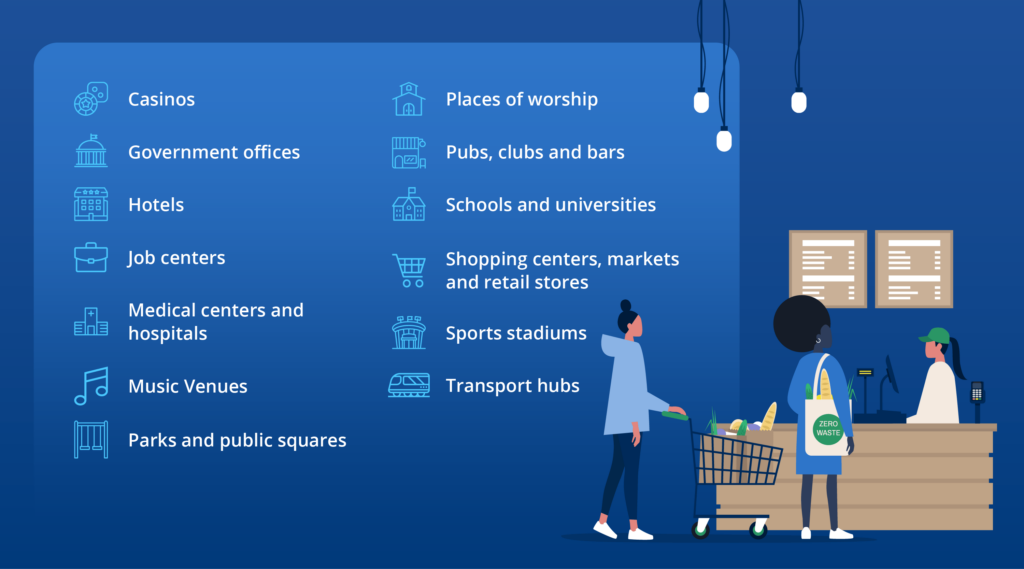In May 2017, the U.K. witnessed one of the worst bombing attacks in history at concert venue Manchester Arena, which took the lives of 22 people and injured hundreds more. Since then, the country has continued to face a multifaceted, complex and ever-evolving terrorism threat landscape.
Yet today, there is still no legal requirement for organizations or venues to consider or employ security measures at the vast majority of public places. There is also a lack of government support. While there is an estimate of 650,000 crowded places in the U.K., only 0.2 percent are currently prioritized to receive direct support from the state’s network of counter-terrorism experts.
As such, organizations around the U.K. have been working to develop proposals to improve public security—with one of the most supported campaigns being the Protect Duty, also known as Martyn’s Law.
What the bill entails
Led by the mother of a Manchester Arena attack victim, the campaign for the Protect Duty anti-terrorism legislation calls for a legal requirement for tougher security measures to ensure preparedness for and protection from terrorist attacks and other physical security risks. The bill will apply to crowded public spaces and venues—any venue with a capacity of more than 100 people.

If implemented, the law will require publicly accessible locations to:
- Have at least 25 percent of their staff take counter-terorrism awareness training
- Conduct vulnerability assessments of operating spaces
- Develop mitigation plans and proportionate security measures
- Put in place counter-terorrism plans
- Enforce more thorough training and physical security checks
In addition, venues and local authorities need to have clear response plans, including efficient ways to:
- Guide people towards a location
- Shelter people (if necessary)
- Communicate with visitors/authorities
- Ensure staff know how to enact these steps
Reaction to Protect Duty
According to the U.K. government’s consultation findings, the majority of the 2,755 respondents—including various organizations, sectors and campaigners—support the proposed legislation. While respondents shared concerns about the high cost of implementing additional security measures, they agreed that all measures should be proportionate to the size of each organization.
Many also expressed strong views about the need for accountability, including the establishment of clear roles and responsibilities among event organizers, as well as those at senior levels within venues and organizations.
Use real-time information to ensure compliance
While Protect Duty focuses on counter-terrorism security measures, the requirements of the bill will certainly help prepare venues for other prevalent physical security risks—such as extreme weather, political instability and street crime.
As such, whether the U.K. government decides to make Protect Duty a law, it’s in all businesses’ best interest to take proactive steps now to enhance their security measures in order to safeguard the public and their venue from the diverse risk landscape.
One way to do so is to deploy effective technology tools that enable both the real-time discovery of threats and collaborative, rapid crisis response. This will allow organizations to stay ahead of all types of physical security risks, as well as investigate and respond to incidents more quickly and effectively.
For example, Dataminr’s real-time alerting solution, Dataminr Pulse, helps ensure organizations are the first to know of high-impact events and emerging risks—at the global, regional and hyperlocal level—that affect public safety and spaces. This means those responsible for securing those spaces can easily identify potential threats in real time, often seconds or minutes within an occurrence. Pulse also gives them the ability to swiftly see where those threats are in relation to their venue and maintain real-time visibility of incidents as they unfold.
As a result, venues will be better able to take proactive actions and mitigate potential casualties and/or damage, thus meeting the goal of Protect Duty.
Read More: Using Collaboration Workflows to Help Streamline Crisis Response
While it’s unclear whether and when Protect Duty becomes law, it’s imperative that organizations responsible for publicly accessible locations start to evaluate and rethink their security operations to prepare for not just attacks similar to that of Manchester Arena, but all potential threats.
If the bill passes, though the details are yet to be finalized, businesses will need more resources to comply with the requirements. With Dataminr Pulse’s real-time information, organizations of all sizes can be confident they’re armed with the advanced, real-time technology needed to ensure they can better protect their venues and public safety.
Risk in Real Time newsletter
Sign up for our monthly newsletter for the latest on security and business trends, news and insights.
SUBSCRIBE




